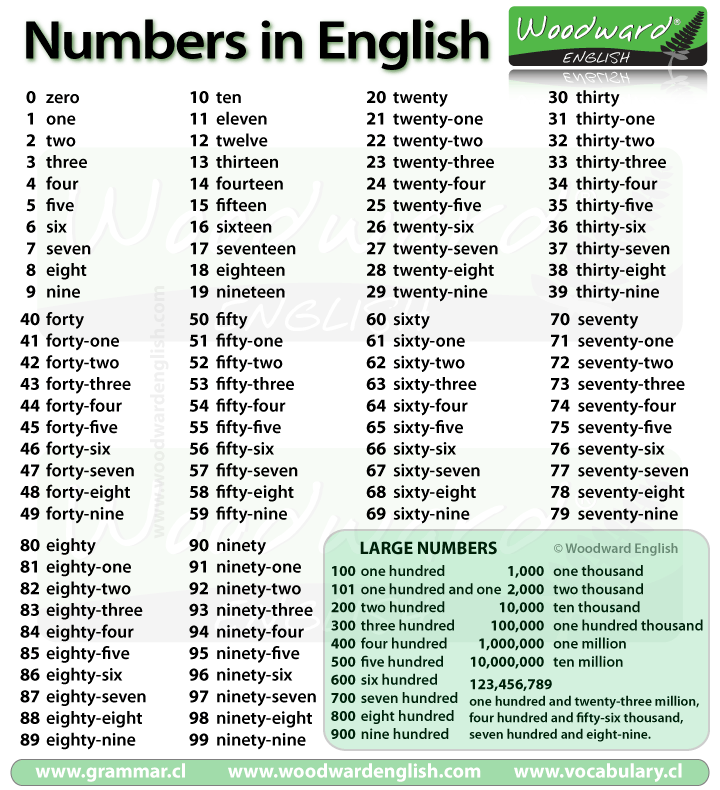Following along with some previous questions:
- The @dbasnett original here: Number to Words
- @nhgrif's here: Int extension for translating integer to plain English
I wanted to answer the original question with a different algorithm, but was not able to get the VB.net code to work. I see @nhgrif had the same idea as me, and proposed a Swift solution.
This is the algorithm I would use, but in Java.
Like other questions, I am looking for possible improvements, or suggestions for other aspects that may make this more robust, and more usable.
public class IntToText {
private static final String[] SCALES = {"", "thousand", "million", "billion", "trillion", "quadrillion", "quintillion", "sextillion"};
private static final String[] SUBTWENTY = {"zero", "one", "two", "three", "four", "five", "six", "seven", "eight", "nine", "ten",
"eleven", "twelve", "thirteen", "fourteen", "fifteen", "sixteen", "seventeen", "eighteen", "nineteen"};
private static final String[] DECADES = {"zero", "ten", "twenty", "thirty", "forty", "fifty", "sixty", "seventy", "eighty", "ninety"};
/**
* Convert any value from 0 to 999 inclusive, to a string.
* @param value The value to convert.
* @param and whether to use the word 'and' in the output.
* @return a String representation of the value.
*/
private static final String tripleAsText(int value, boolean and) {
if (value < 0 || value >= 1000) {
throw new IllegalArgumentException("Illegal triple-value " + value);
}
if (value < SUBTWENTY.length) {
return SUBTWENTY[value];
}
int subhun = value % 100;
int hun = value / 100;
StringBuilder sb = new StringBuilder(50);
if (hun > 0) {
sb.append(SUBTWENTY[hun]).append(" hundred");
}
if (subhun > 0) {
if (hun > 0) {
sb.append(and ? " and " : " ");
}
if (subhun < SUBTWENTY.length) {
sb.append(SUBTWENTY[subhun]);
} else {
int tens = subhun / 10;
int units = subhun % 10;
if (tens > 0) {
sb.append(DECADES[tens]);
}
if (units > 0) {
sb.append(" ").append(SUBTWENTY[units]);
}
}
}
return sb.toString();
}
/**
* Convert any long input value to a text representation
* @param value The value to convert
* @param useand true if you want to use the word 'and' in the text (eleven thousand and thirteen)
* @param negname
* @return
*/
public static final String asText(long value, boolean useand, String negname) {
if (value == 0) {
return SUBTWENTY[0];
}
// break the value down in to sets of three digits (thousands).
int[] thous = new int[SCALES.length];
boolean neg = value < 0;
// do not make negative numbers positive, to handle Long.MIN_VALUE
int scale = 0;
while (value != 0) {
// use abs to convert thousand-groups to positive, if needed.
thous[scale] = Math.abs((int)(value % 1000));
value /= 1000;
scale++;
}
StringBuilder sb = new StringBuilder(scale * 40);
if (neg) {
sb.append(negname).append(" ");
}
boolean first = true;
while (--scale > 0) {
if (!first) {
sb.append(", ");
}
first = false;
if (thous[scale] > 0) {
sb.append(tripleAsText(thous[scale], useand)).append(" ").append(SCALES[scale]);
}
}
if (!first && useand && thous[0] != 0) {
sb.append(" and ");
}
sb.append(tripleAsText(thous[0], useand));
return sb.toString();
}
public static void main(String[] args) {
System.out.printf("%15d %s%n", Integer.MIN_VALUE, asText(Integer.MIN_VALUE, true, "minus"));
System.out.printf("%15d %s%n", Integer.MAX_VALUE, asText(Integer.MAX_VALUE, true, "minus"));
System.out.printf("%15d %s%n", 0, asText(0, true, "minus"));
System.out.printf("%15d %s%n", Long.MIN_VALUE, asText(Long.MIN_VALUE, true, "minus"));
System.out.printf("%15d %s%n", Long.MAX_VALUE, asText(Long.MAX_VALUE, true, "minus"));
}
}
The program produces the output (added 'x' to avoid bulletted formatting problem):
x x -2147483648 minus two billion, one hundred and forty seven million, four hundred and eighty three thousand and six hundred and forty eight x 2147483647 two billion, one hundred and forty seven million, four hundred and eighty three thousand and six hundred and forty seven x 0 zero x -9223372036854775808 minus nine quintillion, two hundred and twenty three quadrillion, three hundred and seventy two trillion, thirty six billion, eight hundred and fifty four million, seven hundred and seventy five thousand and eight hundred and eight x 9223372036854775807 nine quintillion, two hundred and twenty three quadrillion, three hundred and seventy two trillion, thirty six billion, eight hundred and fifty four million, seven hundred and seventy five thousand and eight hundred and seven

